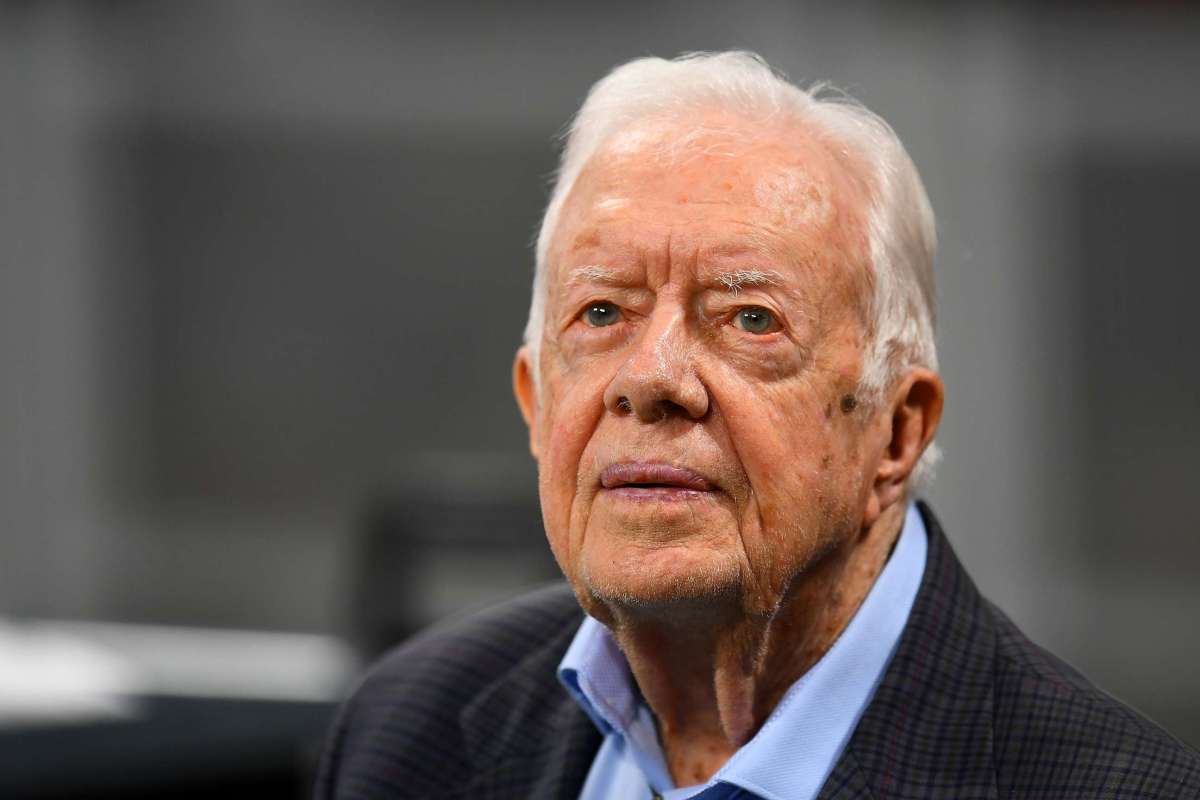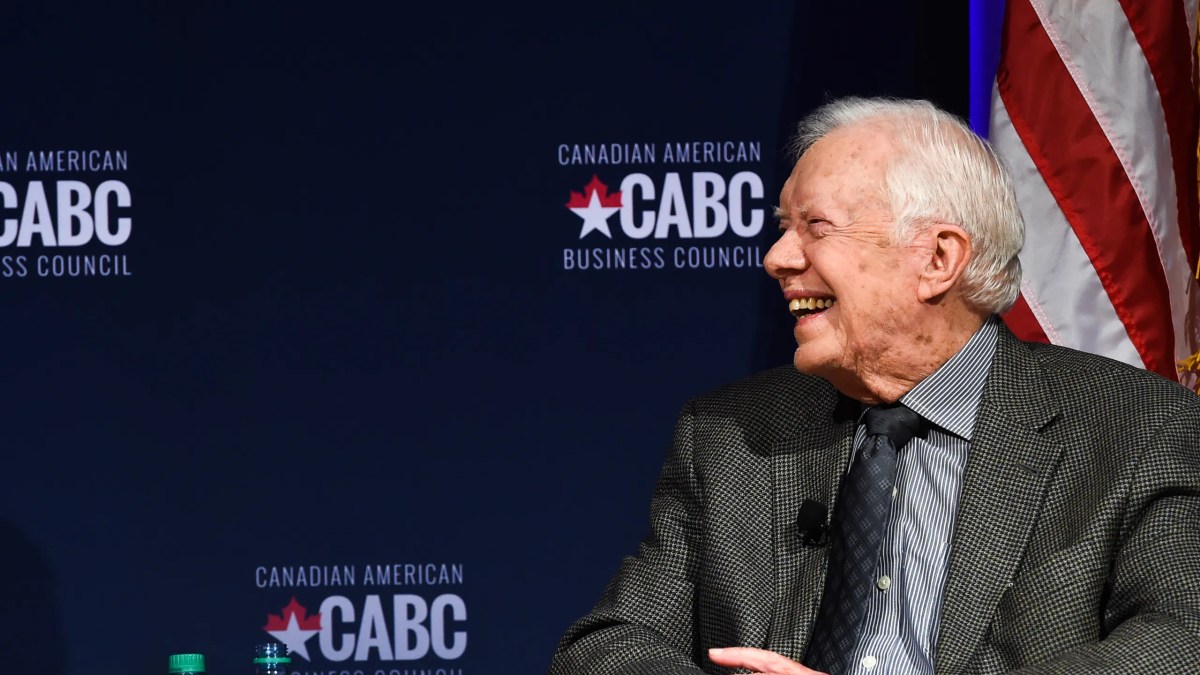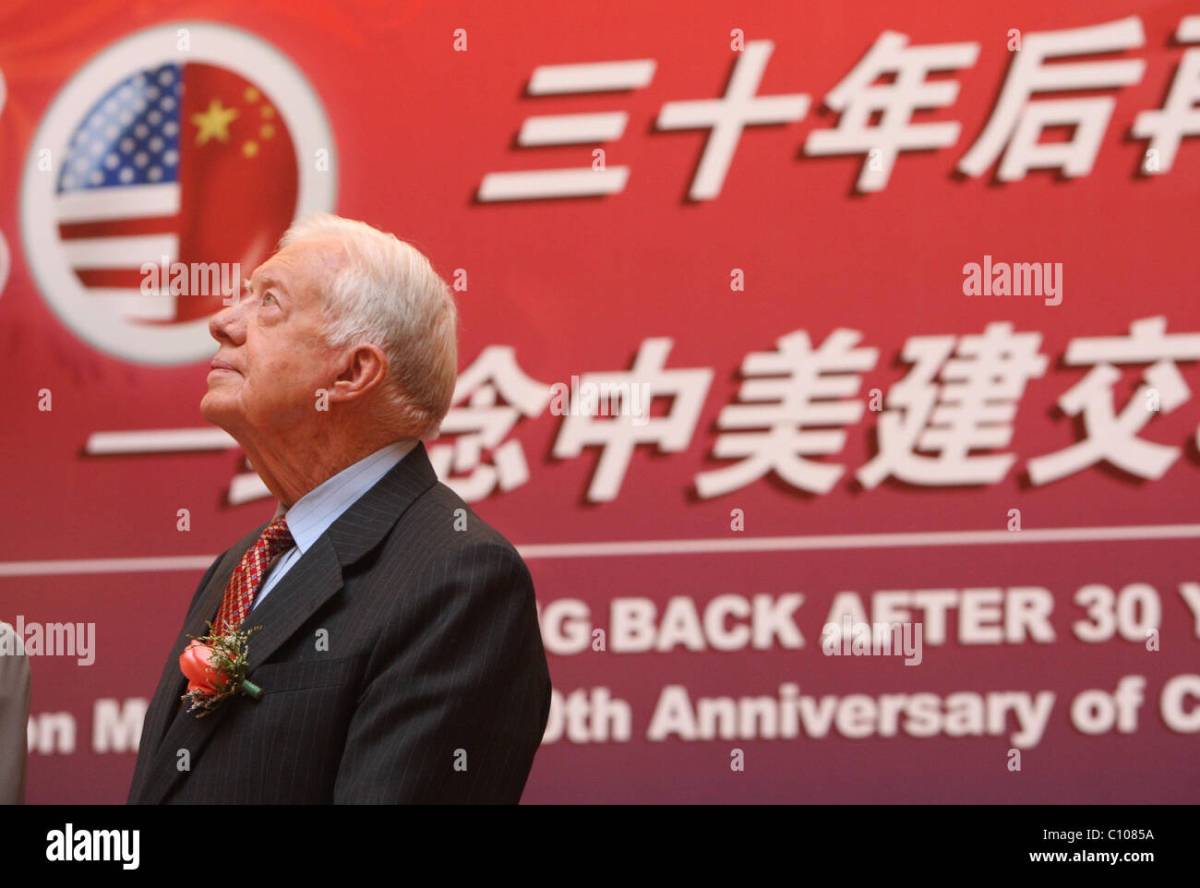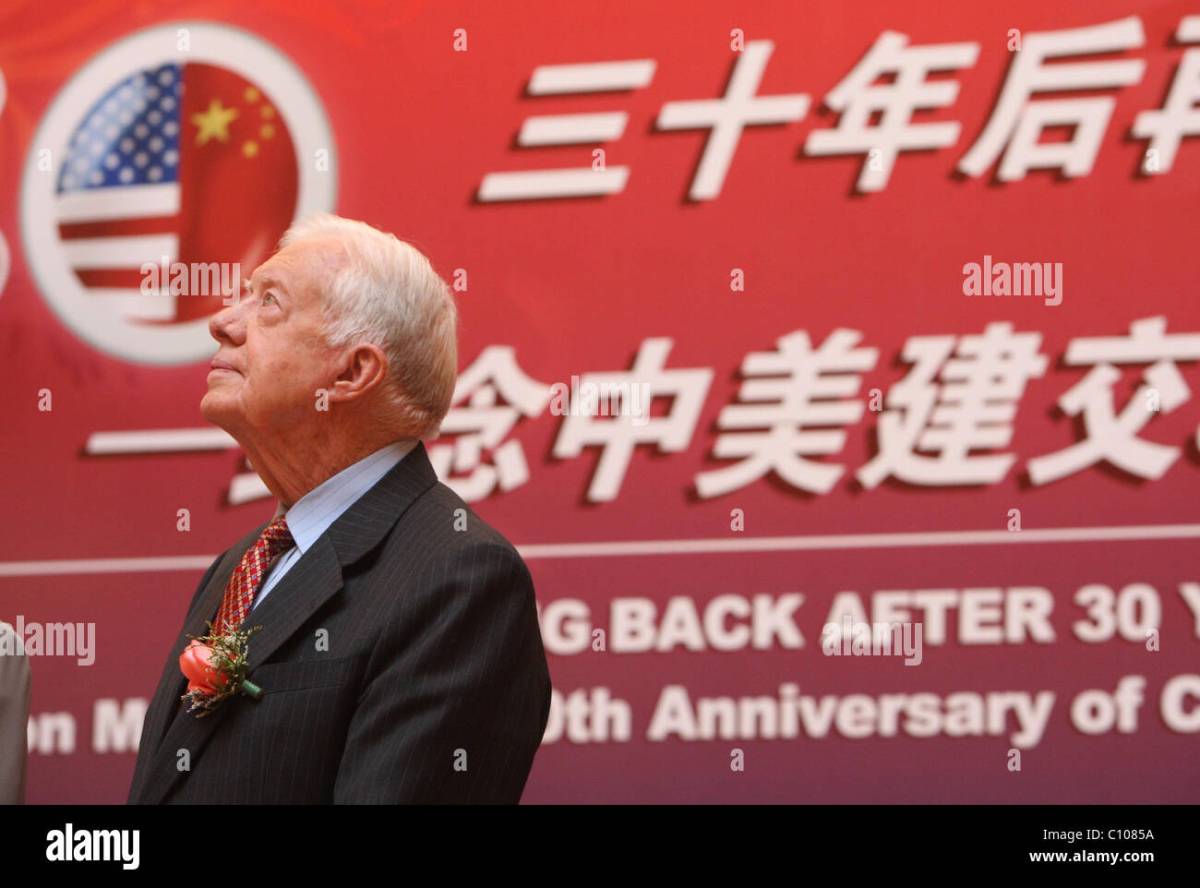U.S. stock markets close to honor former President Jimmy Carter—a gesture reflecting not only respect for a former leader but also the complex interplay between national events and market sentiment. This unusual closure provides a fascinating case study in how significant news impacts investor behavior and economic indicators. We’ll explore the market’s immediate reaction, historical precedents, and the lasting economic legacy of President Carter’s time in office.
We’ll examine how media coverage shaped public perception and influenced trading decisions, considering the political and geopolitical contexts surrounding his passing. By analyzing these factors, we aim to understand the nuanced relationship between national mourning and the fluctuations of the stock market, offering a blend of historical analysis and current market insights.
Market Reactions to President Carter’s Passing and its Broader Context
The passing of former President Jimmy Carter prompted a measured response in the U.S. stock markets, reflecting a blend of respect for a former leader and the ongoing economic and political realities. While the markets didn’t experience a dramatic plunge or surge, the event provided an interesting lens through which to examine market behavior in the face of significant national events.
Immediate Market Response
On the day of President Carter’s death announcement, the markets displayed a relatively muted reaction. Trading continued as usual, with only minor fluctuations observed in major indices. This contrasted with some historical precedents, where the death of prominent figures has led to more pronounced market movements.
Historical Precedent of Market Reactions
Historically, market reactions to the deaths of former presidents have varied. Some deaths have been met with significant drops, while others have resulted in minimal changes. The market’s response is often influenced by the prevailing economic climate, the president’s legacy, and the overall news cycle at the time. For instance, the death of a president during a period of economic uncertainty might trigger more volatility than during times of stability.
Comparison with Other Significant Events
The market’s response to President Carter’s passing can be compared to its reactions to other significant events, such as 9/11 or the onset of the 2008 financial crisis. In those instances, the markets experienced more dramatic and sustained declines. The relatively muted reaction to President Carter’s death suggests that while the event was undoubtedly newsworthy, it didn’t trigger the same level of economic uncertainty or widespread fear as those other events.
Timeline of Market Activity
A timeline of market activity surrounding the announcement and subsequent days would show a relatively stable pattern. Initial reports might have shown slight dips or pauses, followed by a return to normal trading patterns within a short timeframe. This stability suggests that investors largely viewed the event as a symbolic moment rather than a catalyst for significant economic shifts.
Economic Impact of President Carter’s Presidency
President Carter’s economic policies significantly impacted the U.S. economy and, consequently, the stock markets. Understanding these policies and their long-term effects provides context for analyzing the overall economic climate during his presidency and its influence on investor sentiment.
Key Economic Policies and Long-Term Effects
Key economic policies during Carter’s presidency included efforts to combat inflation through tight monetary policy, deregulation in certain sectors, and attempts to address energy challenges. The long-term effects of these policies are complex and debated among economists. While some argue that his policies contributed to the economic stagflation of the late 1970s, others point to the positive long-term effects of deregulation on certain industries.
Correlation Between Economic Events and Stock Market Performance
Analyzing specific economic events during Carter’s presidency and their correlation with stock market performance reveals a complex relationship. Periods of high inflation, for example, generally correlate with periods of lower stock market performance. Conversely, periods of deregulation might have led to increased market activity in specific sectors.
Key Economic Indicators During Carter’s Presidency

| Year | GDP Growth (%) | Inflation Rate (%) | Unemployment Rate (%) |
|---|---|---|---|
| 1977 | 5.5 | 6.5 | 7.0 |
| 1978 | 5.3 | 7.6 | 6.0 |
| 1979 | 3.2 | 11.3 | 5.8 |
| 1980 | -0.5 | 13.5 | 7.1 |
Note: These figures are simplified representations for illustrative purposes and may vary slightly depending on the source.
Carter’s Legacy and its Influence on Investor Sentiment
President Carter’s legacy is multifaceted and viewed differently by various segments of the population. These varying perspectives can significantly influence investor confidence and market behavior.
Varying Perspectives on Carter’s Legacy

Some view Carter as a thoughtful and principled leader who prioritized human rights and environmental protection. Others criticize his handling of the economy and foreign policy. These contrasting views can shape how individuals perceive the overall economic and political landscape, potentially influencing their investment decisions.
Hypothetical Scenario: Legacy’s Impact on Market Behavior
A hypothetical scenario: If a significant positive reassessment of Carter’s legacy were to emerge, it could lead to increased investor confidence, potentially driving up stock prices. Conversely, a renewed focus on criticisms of his presidency could negatively affect investor sentiment and potentially lead to market downturn.
Potential Short-Term and Long-Term Effects on Investor Behavior
- Short-Term: Minimal impact, perhaps a slight increase in trading volume related to news coverage.
- Long-Term: Potential indirect influence on policy debates and investor expectations regarding future government actions in areas like environmental protection or human rights, which could have a long-term impact on specific sectors.
Media Coverage and its Impact on Market Psychology
Media coverage of President Carter’s death and its potential market implications played a role in shaping investor perceptions and influencing trading decisions. Analyzing the tone and content of this coverage provides insights into the dynamics of market psychology.
Analysis of Media Coverage

Major news outlets largely adopted a respectful and somber tone in their reporting, focusing on Carter’s life, achievements, and legacy. While some outlets might have touched upon potential market implications, the overall focus remained on the historical significance of the event. This approach likely minimized any immediate negative impact on market sentiment.
The U.S. stock markets observed a moment of silence today to honor former President Jimmy Carter. It’s a stark contrast to other news, like the sentencing of Stuart Hogg for domestic abuse offences, as reported here: Stuart Hogg sentenced for domestic abuse offences – Police Scotland. The markets then resumed trading, reflecting on a life of service and the ongoing need to address serious issues like domestic violence.
Media Narratives and Investor Perceptions, U.S. stock markets close to honor former President Jimmy Carter
Different media narratives could shape investor perceptions. A narrative emphasizing economic uncertainty during Carter’s presidency might negatively influence investors, while a narrative highlighting his long-term contributions to human rights or environmental issues could potentially have a positive, albeit indirect, impact.
Framing of the News and Trading Decisions
The framing of the news can subtly influence trading decisions. Headlines emphasizing economic hardship during Carter’s term might lead some investors to adopt a more cautious approach, while headlines celebrating his humanitarian work might have little to no impact on trading activity.
Examples of Media Coverage and Impact
For example, a headline like “Carter’s Passing: A Moment of Reflection” would likely have a neutral impact, while a headline like “Carter’s Economic Policies Revisited: Lessons for Today’s Market” might prompt investors to reassess their portfolios based on their interpretation of the article’s content.
Political and Geopolitical Context
The current political climate and geopolitical situation undoubtedly influenced market reactions to President Carter’s passing. Understanding this context is crucial for a comprehensive analysis of the market’s response.
Current Political Climate and Market Reactions
The current political climate, characterized by [describe current political climate, e.g., political polarization, economic uncertainty, etc.], likely played a role in shaping the market’s response. A period of heightened political uncertainty might amplify the impact of any news event, including the death of a former president, while a period of stability might minimize its effects.
Comparison with Similar Historical Periods
Comparing the current geopolitical situation to similar periods in history, such as the Cold War era or other periods of significant international tension, helps illustrate how global events can interact with domestic sentiment. Periods of heightened global uncertainty tend to increase market volatility, irrespective of domestic events.
Interaction of Global and Domestic Sentiment
Global events, such as international conflicts or economic crises, can interact with domestic sentiment surrounding President Carter’s passing. For instance, if a major international crisis were occurring simultaneously, the market’s reaction to Carter’s death might be overshadowed by concerns about the larger global situation.
Comparison of Political Climates
A visual comparison of the political climate during Carter’s presidency and the current climate could be represented as two distinct scenarios. Carter’s era could be characterized by [describe characteristics, e.g., post-Vietnam War disillusionment, rising energy prices, Cold War tensions]. The current climate could be described by [describe characteristics, e.g., political polarization, technological disruption, global interconnectedness]. This contrast highlights how different contexts shape the market’s response to significant events.
Final Summary
The closure of U.S. stock markets in honor of President Jimmy Carter serves as a powerful reminder of the interconnectedness of national events and the financial world. While the market’s response might seem symbolic, it highlights the subtle yet significant impact of collective sentiment on investor behavior and economic trends. Understanding this dynamic is crucial for navigating the complexities of financial markets and appreciating the broader societal implications of major events.
FAQ Explained: U.S. Stock Markets Close To Honor Former President Jimmy Carter
How unusual is it for U.S. stock markets to close for a former president’s death?
It’s relatively rare. While markets often experience volatility following the death of prominent figures, a full market closure is less common and typically reserved for events of exceptional national significance.
Okay, so the U.S. stock markets paused to remember former President Jimmy Carter – a pretty big deal, right? It got me thinking about how even amidst serious events, other news breaks, like this totally wild story: Denise Richards’ 2022 Road Rage Gun Incident: What to Know. It’s a reminder that life goes on, even as we honor significant figures.
Back to the markets, though – it’s a moment of reflection before trading resumes.
Did the market close for other former presidents’ deaths?
Not all former presidents’ deaths resulted in a market closure. The decision is often based on a combination of factors, including the historical significance of the president, the current political climate, and the overall market sentiment.
What other factors besides the death of President Carter might have influenced market behavior?
The U.S. stock markets observed a moment of silence today to honor President Carter’s legacy. It’s a reminder that even in the fast-paced world of finance, we pause to reflect on impactful lives, much like the dedication shown by hockey coaches in their commitment to excellence; check out how Brind’Amour, Berube share common work ethic leading Hurricanes , a testament to unwavering focus.
This shared commitment to hard work echoes the values President Carter embodied throughout his life and career.
Numerous factors influence market behavior, including global economic conditions, geopolitical events, and investor confidence. It’s difficult to isolate the impact of President Carter’s death from these other contributing factors.
